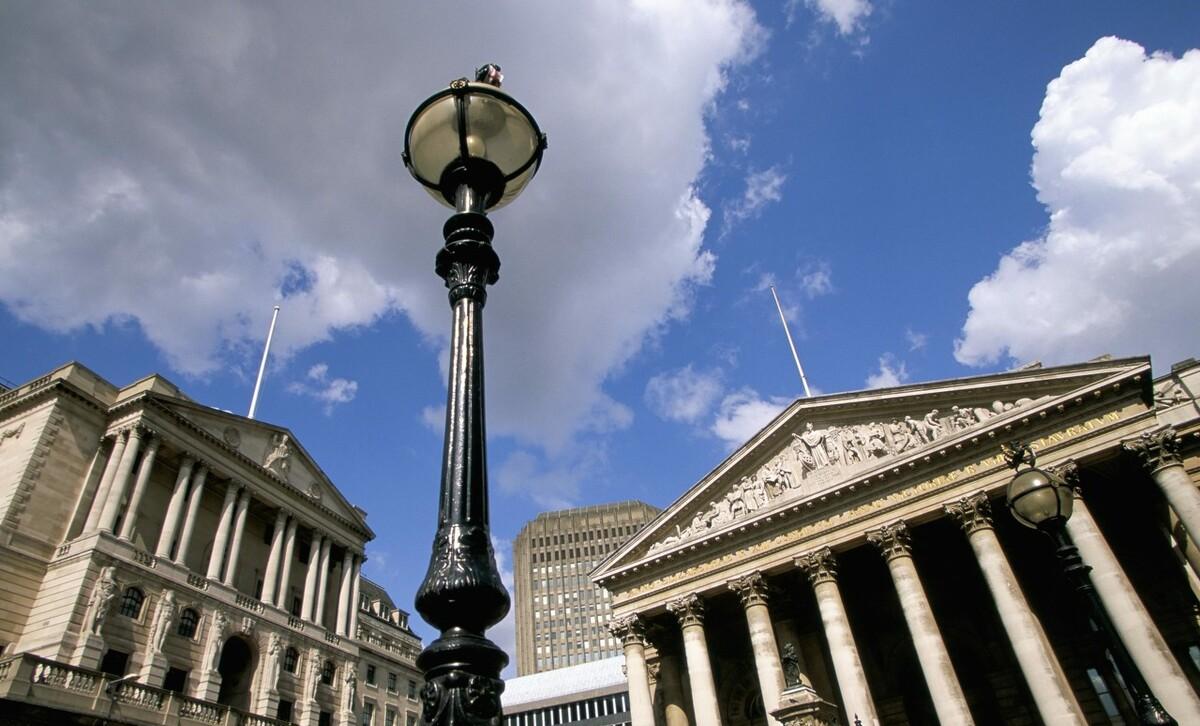BEIJING, Dec. 15 (Xinhua) -- In its regular assessment of Britain's economic outlook, the International Monetary Fund warned that the Bank of England cannot "tend to stay on the sidelines" and expects inflation to reach 5.5 percent next spring, more than double the 2 percent target level.
The IMF said the UK "needs to withdraw from the unconventional monetary policy offered in 2020-21". The Bank of England should also "seize the earliest opportunity" to begin pulling out of quantitative easing and implement "pre-planned" asset sales. The UK Treasury could also calibrate fiscal plans to curb inflation, raise taxes early to curb current excess demand, and then ease policy a few years later to support economic growth. He also said the Bank of England and the Treasury should join forces to curb inflation as rising inflation pressures threaten britain's long-term growth prospects.

On the 14th local time, the British Parliament voted to pass a series of stricter epidemic prevention measures to cope with the rapid spread of the new crown variant virus Omilton strain. The new epidemic prevention measures include requiring people to wear masks in indoor public places such as movie theaters and theaters; when entering large venues such as nightclubs and gymnasiums, they must show a "vaccine pass" showing the vaccination status, which must be displayed as the completion of the full vaccination or negative virus test; and the national health and medical system employees must be forced to receive the new crown vaccine. These measures are designed to buy time for people to get the COVID-19 vaccine booster.
Despite rising uncertainty about the UK's outlook, the COVID-19 pandemic is expected to leave permanent scars on the UK economy. Affected by the epidemic prevention measures, the BRITISH economic growth is bound to "moderately slow down". On December 10, data released by the Uk's Office for National Statistics showed that the UK's gross domestic product (GDP) growth rate in October was only 0.1%, a sharp slowdown from the previous value of 0.6% in September. Economists' previous expectations were generally 0.4 percent.
The data shows that the UK's trade deficit widened in the three months to October. This means that the UK has not yet recovered from the outbreak and the economic situation is still more depressed than it was before the outbreak.
After the data was released, UK Finance Minister Rishi Sunak said: "We have always acknowledged that our road to recovery may be bumpy. But the actions we've taken, as well as our £400 billion economic and vaccine plans ongoing, mean we have the ability to keep the economy on track. ”
At present, the growth rate of Opmi Kerong cases in the UK is staggering. The total number of patients in The British government confirmed by genome sequencing reached about 4700 on the 15th, and the new cases were 1576. But the UK Health Security Agency (UKHSA) estimates that there are 200,000 new cases of Infections in the UK every day, far exceeding the official figures. Previously, confirmed cases in the UK doubled in an average of 2.5 days. UKHSA warns that if the growth rate and doubling time of Theomilon continue to maintain the rate of the past two weeks, then the next 2-4 weeks of the Omiljung will replace Delta as the most popular strain in the UK, "the number of infected people may exceed 1 million".
On Thursday, December 16, the Bank of England will announce its interest rate decision. At present, the market is betting that in the event of an economic downturn, the Bank of England will not raise interest rates for the time being. Yael Selfin, Chief Economist at KPMG UK, said: "Given the uncertainty surrounding government restrictions and their impact on household consumption spending, we expect the Monetary Policy Committee to unanimously postpone the rate hike until Next February.
However, the IMF concluded in a report released on Tuesday: "There is a risk of rising inflation in the near future, but after two to three years, the risk will turn to a slowdown in growth." Omikeron may exacerbate inflationary pressures, but if this variant or future new variant is more deadly, it could hit confidence and demand, which in turn could have deflationary effects. Fiscal policy can help address the imbalance between supply and demand. The government could bring forward some of the fiscal austerity in 2023/24 to 2022/23 to help curb demand in the short term, while also helping to ease the drag on economic growth in subsequent years. ”
Disclaimer: Xinhua Finance is a national financial information platform undertaken by Xinhua News Agency. Under no circumstances will the information published on the Platform constitute investment advice.